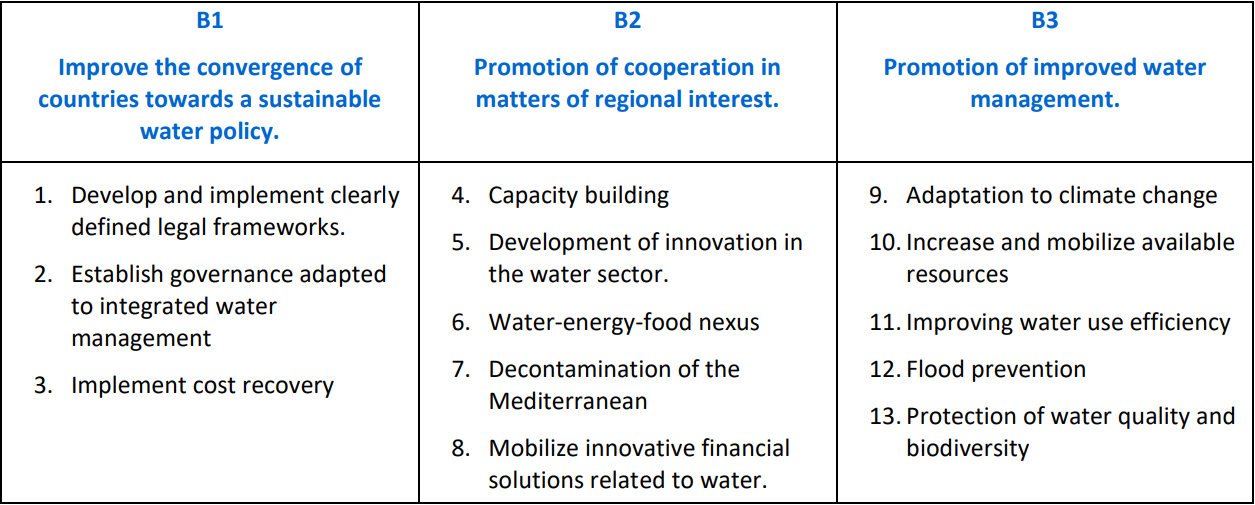History
The Western Mediterranean Forum, commonly referred to as 5+5 Dialogue, was officially launched in Rome in 1990 as an informal sub-regional forum of countries geographically situated on the western rim of the Euro-Mediterranean littoral and comprising of Algeria, France, Italy, Libya, Mauritania, Morocco, Portugal, Spain and Tunisia and Malta (1991).
As a trans-Mediterranean security initiative, the rationale of the 5+5 Dialogue is to secure closer cooperation between the five EU member states and the five Arab Maghreb countries through political dialogue and economic cooperation and by encouraging more efficient management of resources as a means of enhancing regional interdependence and development.
In that context, the Euro-Mediterranean Ministerial Conference on Water (22 December 2008, Dead Sea, Jordan) agreed to prepare a shared and long-term Strategy for Water in the Mediterranean and approved guidelines for its elaboration.
Despite a general consensus from all the countries and experts involved on the technical contents, the references to the main geographical conflicts in the region made it impossible to adopt the Strategy.
Nevertheless, Spain and Algeria considered that the adoption of a water strategy for the Western Mediterranean basin was a necessary step to promote a common policy that could help prevent conflict, foster development and contribute to the respect of the human right to water and sanitation by meeting water demands in water scarce environments in a sustainable manner. To this end, they joined forces to launch a joint initiative in the 5+ 5 Forum context.
The initiative was announced during the 68th Session of the UN General Assembly in New York and officially launched at the first 5+5 Economic Forum held in Barcelona on 23 October 2013. On 31st March 2015, the Water Strategy in the Western Mediterranean (WSWM) was adopted at the first 5+5 Ministerial Conference on Water.
Objectives
The long-term 5+5 WSWM’s objectives are to preserve water quality and to balance quantity of used and available water to achieve regional sustainable economic growth, social prosperity, access to water for all and environmental protection and rehabilitation. The 5+5 WSWM aims at preventing conflict, boosting development and contribute to guaranteeing the human right to water and sanitation in the Mediterranean region.
 The WSWM is structured around 13 priority issues, grouped in three thematic blocks (©MENBO, 2022)
The WSWM is structured around 13 priority issues, grouped in three thematic blocks (©MENBO, 2022)
Recent activity
The latest work of the 5+5 WSWM is a proposal for a “Capacity Development and Knowledge Transfer Programme on Water for the Western Mediterranean".
This consists in a draft for the elaboration and implementation of a governance model as discussed at the 5+5 Dialogue Working Group of 22 September 2022. The document also contains a first Work Plan 2023- 2024 in annex.
The Programme’s objectives are to identify and select activities that are of interest for their execution within the framework of the WSWM. It also aims to match the capacity development demands of the Western Mediterranean countries with potential suppliers within and outside the region.
Its successful implementation will enable accelerated progress towards the achievement of UN Sustainable Development Goal 6 (SDG 6), greater cooperation and integration of water and sanitation with other thematic areas in national development agendas, as well as better monitoring and reporting on SDG 6.